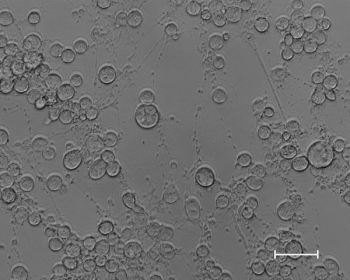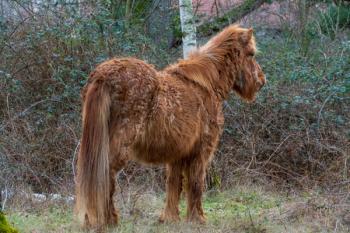
Kentucky caterpillar numbers signal heightened MRLS threat
Lexington, Ky. - This year's eastern tent caterpillar populations are the highest since 2001, one of the worst years in recent memory for Mare Reproductive Loss Syndrome (MRLS) in central Kentucky, according to University of Kentucky entomologists.
Lexington, Ky. — This year's eastern tent caterpillar populations are the highest since 2001, one of the worst years in recent memory for Mare Reproductive Loss Syndrome (MRLS) in central Kentucky, according to University of Kentucky entomologists.
Researchers link the insects with MRLS, which results in late-term foal losses, early-term fetal losses and weak foals. An estimated 30 percent of 2001-2002 Thoroughbred foals were lost and the state was hit with an overall economic loss of about $336 million from foal losses in all horse breeds.
"The eastern tent caterpillar populations are dramatically up this year, the highest I've seen since the MRLS crisis. The larvae are full- size, many trees are totally defoliated and I've seen very large numbers of caterpillars moving along fence rails and wandering out many meters into pastures adjacent to the cherry trees we are using to conduct eastern tent caterpillar trials," says Dan Potter, UK College of Agriculture entomologist.
The insects' maturation and wandering are occurring a bit later this year because of a cooler spring, he says.
No cases of MRLS have been reported so far this year, but experts will stay on the alert.
Studies show that pregnant mares inadvertently eat the caterpillars and that caterpillar hairs then become embedded in the lining of the alimentary tract, allowing normal tract bacteria to gain access to and reproduce in sites with reduced immunity, such as the fetus and placenta, often resulting in fetal death.
Caterpillar populations run in approximately 10-year cycles, during which explosive growth years usually are followed by a period of decline, researchers say.
This year, if host trees haven't been removed from pastures, horse-farm managers should keep pregnant mares away from them and should expect higher insect numbers even into the 2009 season, UK experts say.
Newsletter
From exam room tips to practice management insights, get trusted veterinary news delivered straight to your inbox—subscribe to dvm360.





